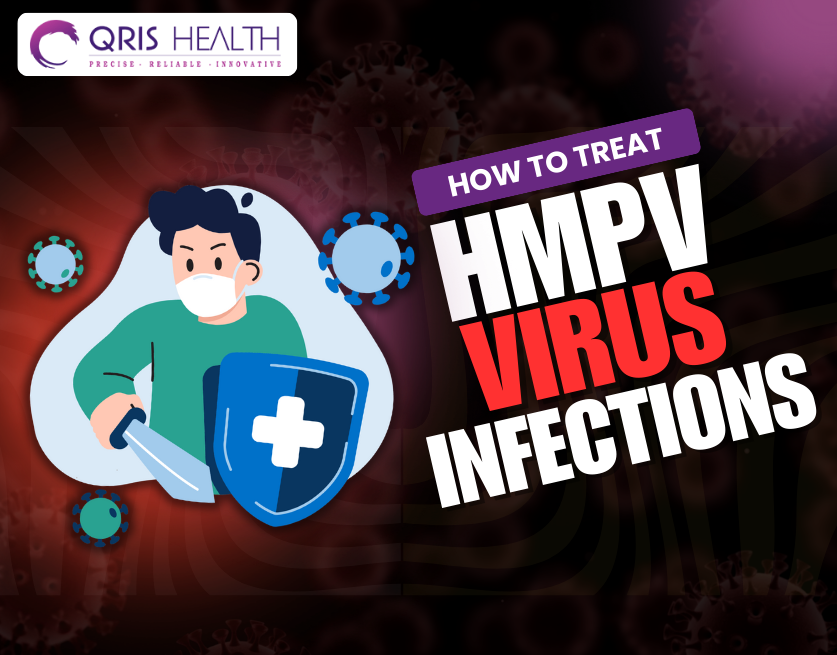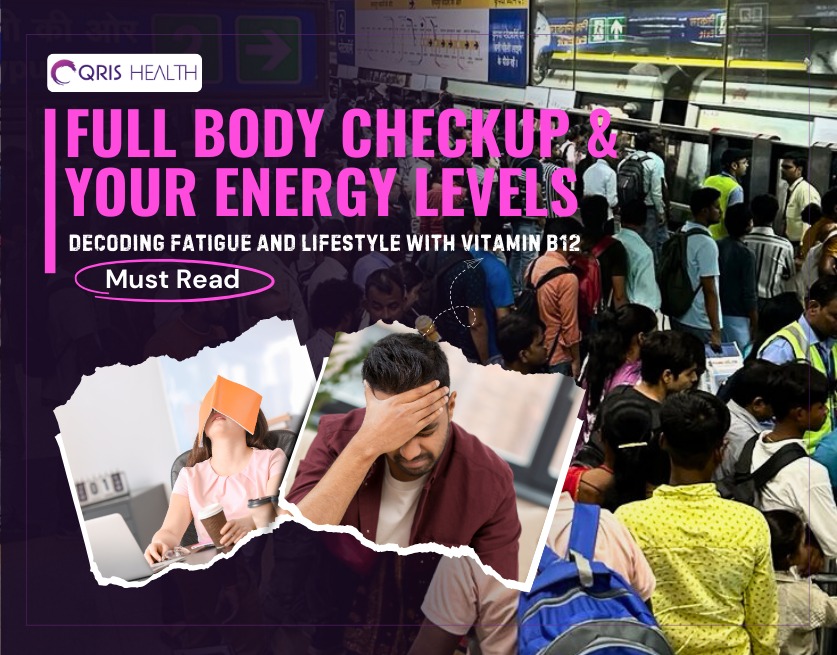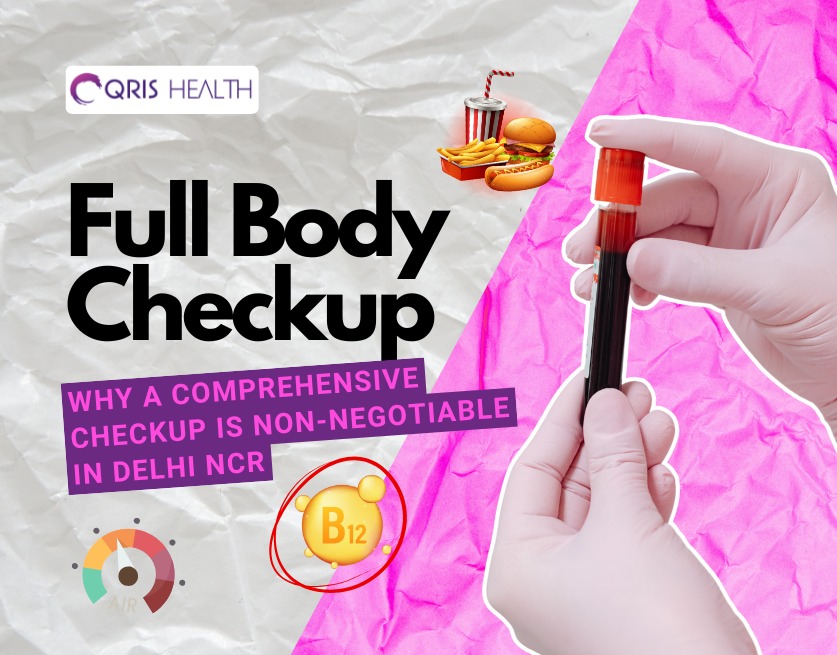Human metapneumovirus (HMPV) is a respiratory virus giving rise to mild symptoms, reminiscent of a cold, but can cause severe complications, especially in susceptible populations—that is, young children, older adults, and those who are immunocompromised. Since there is no specific antiviral medication for HMPV, management is based on symptom relief and prevention of complications.
How to Treat HMPV
Treatment for HMPV infection is determined by the severity. A mild case can be treated at home, while a serious case may need hospital admission.
1. At-Home Care for Mild Cases
Most people can recover from HMPV at home by addressing symptoms and maintaining overall health.
• Hydration: Drink plenty of fluids to prevent dehydration. Warm liquids like herbal teas or broths can also soothe a sore throat.
• Rest: Adequate rest is crucial for the body to fight the virus effectively.
• Over-the-Counter (OTC) Medications:
o Pain relievers like acetaminophen or ibuprofen can reduce fever and alleviate body aches.
o Decongestants and cough suppressants can provide relief from nasal congestion and persistent cough.
o Always consult a pediatrician before giving medications to children.
• Humidity: Using a humidifier or taking steamy showers can help ease nasal congestion and improve breathing.
2. Hospital Treatment for Severe Cases
For individuals experiencing severe symptoms, hospitalization may be necessary. Healthcare providers may administer:
• Oxygen Therapy: Supplemental oxygen through a nasal tube or mask to support breathing.
• Intravenous (IV) Fluids: To prevent or treat dehydration, especially if the patient cannot drink fluids.
• Corticosteroids: To reduce inflammation and ease breathing difficulties.
• Monitoring: Continuous observation of vital signs and oxygen levels to manage complications.
3. Managing Complications
In cases where HMPV leads to secondary bacterial infections, such as pneumonia, antibiotics may be prescribed. However, antibiotics do not treat the viral infection itself.
When to Seek Medical Attention
Contact a Healthcare Provider If:
• Symptoms persist or worsen after a few days.
• Fever lasts longer than three days.
• You or your child has an underlying health condition that increases the risk of complications.
Go to the Emergency Room If:
• High fever exceeds 103°F (40°C).
• Difficulty breathing or shortness of breath occurs.
• Skin, lips, or nails develop a bluish tint (cyanosis).
• Symptoms of dehydration appear, such as dry mouth or reduced urination.
• Pre-existing health conditions worsen.
Do You Need Antibiotics?
Antibiotics are not effective against HMPV because it is a viral infection. However, if a secondary bacterial infection develops, such as bacterial pneumonia, your healthcare provider may prescribe antibiotics.
Preventing HMPV Infections
Since there is no vaccine for HMPV, prevention relies on good hygiene practices and reducing exposure to the virus.
• Wash Hands Frequently: Use soap and water for at least 20 seconds. If unavailable, use an alcohol-based hand sanitizer.
• Practice Respiratory Etiquette: Cover your mouth and nose with your elbow or a tissue when sneezing or coughing. Dispose of tissues immediately.
• Avoid Close Contact: Stay away from individuals showing symptoms of respiratory infections.
• Disinfect Surfaces: Regularly clean commonly touched objects like doorknobs, phones, and remote controls.
• Avoid Touching Your Face: Keep hands away from your eyes, nose, and mouth, especially in public spaces.
• Use Masks: Wear masks in crowded areas or when around sick individuals.
• Strengthen Your Immune System: A healthy diet, regular exercise, and sufficient sleep can help the body fight off infections.
Outlook for HMPV
Most cases of HMPV resolve within a week with supportive care. However, recovery might take longer for severe cases, and some individuals may experience lingering symptoms like cough or fatigue. High-risk individuals should remain vigilant and seek medical attention promptly if symptoms escalate.
FAQs
1. How is HMPV treated?
HMPV is treated by managing symptoms, as there is no specific antiviral medication for the virus. Mild cases can be addressed with rest, hydration, and OTC medications, while severe cases may require oxygen therapy and IV fluids in a hospital setting.
2. Do antibiotics work for HMPV?
No, antibiotics do not treat HMPV since it is a viral infection. They may be prescribed if a bacterial infection, such as pneumonia, develops as a complication.
3. How long does it take to recover from HMPV?
Mild cases typically resolve within 7–10 days. Severe cases may take longer, especially if complications arise.
4. What home remedies can help with HMPV?
Home remedies include:
• Drinking warm liquids like herbal teas.
• Using a humidifier to ease nasal congestion.
• Gargling with salt water to soothe a sore throat.
5. When should I go to the hospital for HMPV?
Seek emergency care if you or your child has difficulty breathing, a high fever over 103°F, bluish skin or lips, or worsening symptoms of a chronic condition.
6. Can corticosteroids help with HMPV?
Yes, corticosteroids may be used in severe cases to reduce inflammation and improve breathing. However, they are typically administered under medical supervision.
7. How do I care for a child with HMPV?
• Ensure the child stays hydrated.
• Use OTC medications for fever and pain relief (consult a pediatrician first).
• Keep the child comfortable and allow for plenty of rest.
• Monitor for signs of severe illness and seek medical attention if necessary.
8. Can I prevent HMPV?
You can reduce the risk of HMPV by practicing good hygiene, avoiding close contact with sick individuals, and disinfecting commonly touched surfaces.
9. How is HMPV different from other respiratory viruses?
HMPV is similar to RSV and Influenza in terms of symptoms and transmission but currently lacks a vaccine. It is generally less severe than COVID-19 in healthy individuals.
10. Does HMPV have lingering symptoms?
Some individuals may experience lingering symptoms like a cough or fatigue, especially after a severe infection.
Read More
Understanding the Human Metapneumovirus (HMPV) - Is It Dangerous?
How to Prevent HMPV Virus Transmission
How to Identify HMPV Virus Symptoms
Understanding the Human Metapneumovirus (HMPV) and Its Symptoms
Who Is Most at Risk for HMPV Virus?
What Treatments Are Available for HMPV Virus?
What is HMPV Virus?


 Health Risks of Inactive Lifestyle.jpg)
 Health effects of smoking.jpg)


